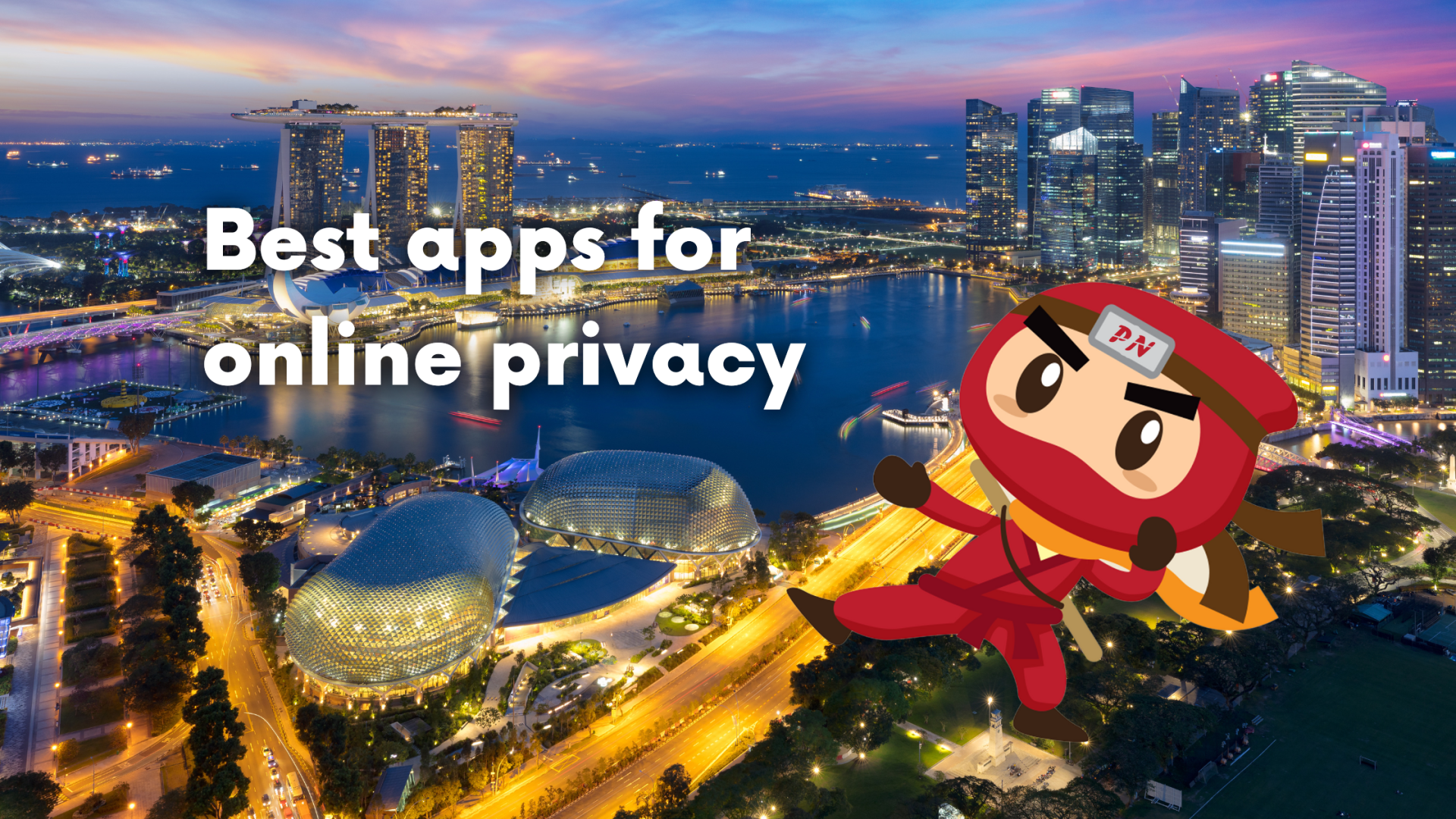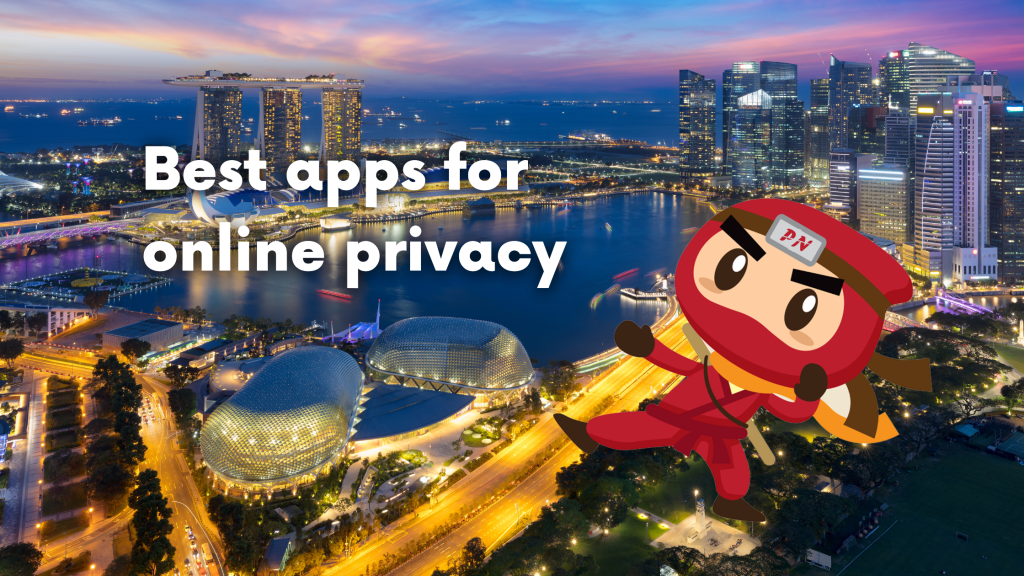KEEP IN TOUCH
Subscribe to our mailing list to get free tips on Data Protection and Cybersecurity updates weekly!







In today’s internet and connectivity, there’s a certain challenge for users to stay protected from bad actors who are lurking and waiting for any individual to fall onto their web. With online privacy evolving as we speak, and with bad actors getting sophisticated with their tactics, online privacy should not be taken lightly.
To protect users from unwanted lurkers that track their digital footprint, there are apps available that could help to keep the bad actors at bay. These apps guard your privacy as they block and prevent threat actors from ever getting your personal data or confidential accounts.
The market is rife with apps claiming to have the users’ best interest in mind. But so far, we’ve rounded up 15 best apps for online privacy that users can consider.
Signal has recently risen to the top of the app store rankings thanks to an amendment to WhatsApp’s privacy policy that requires user data to be shared with its parent company, Facebook.
So, if you’ve been looking for a cause to switch to a more secure messaging service, this is it!
Signal’s proprietary protocol is used for end-to-end encryption in voice calls, video calls, and instant messages. Because the technology is open source, cybersecurity pros can examine the code. Furthermore, Signal employs a one-of-a-kind device safety number to verify that your messages and calls are sent to their appropriate receiver.
Users can also use a PIN code to encrypt the app and send self-destructing texts.
Google is worth hundreds of billions of dollars mostly because of its massive data repository. It monitors your every move, including what websites you visit, what you buy online, and where you connect to the internet.
DuckDuckGo is a more private option. It does not save any user data, IP addresses, or personally identifiable information. There is also no advertising. Furthermore, it requires websites to employ an encrypted connection.
For search queries, you can use the DuckDuckGo browser (as an alternative to Chrome) or go to duckduckgo.com.
To encrypt all internet information traveling to and from your device, use a Virtual Private Network (VPN) such as ExpressVPN. It is required when you consider that you may connect to insecure Wi-Fi networks or provide financial information via unsecured websites.
VPNs are an amazing way to hide your digital footprint and change your location to other areas of the world, whether for watching your favorite sports or removing restrictions of streaming media sites (Netflix, anyone?).
If you are self-employed or freelance, you must expand your network. However, giving out your personal cell phone number may result in a flood of follow-up calls.
2ndLine provides you with an additional phone number for business calls or to keep your personal number private.
Google’s data mining isn’t limited to search. Gmail also uses algorithms to create a metadata profile in order to give you more tailored adverts.
If you dislike metadata profiles, consider switching to ProtonMail, a considerably more secure alternative to Gmail.
ProtonMail, like Gmail, is completely free to use. But that’s where the parallels end. Signing up requires no personal information. Because every email is end-to-end encrypted, the company cannot decipher the content of your correspondence.
Take note that because ProtonMail is incorporated in Switzerland, it must adhere to the country’s stringent privacy rules.
Also Read: Data governance framework: What organisations in Singapore should know

We tend to use the same or similar passwords across all the apps and websites we use—just it’s easier. However, this behavior puts you one hack away from identity theft.
LastPass‘ password manager allows you to use long, random passwords that are all unique while keeping them all safely stored in one location. You can also use it to save information such as driver’s license numbers, social security numbers, credit card numbers, and bank account information.
It also functions as a password generator, removing the need for you to generate new ones on a regular basis.
We’re so accustomed to allowing all app permissions that we forget how extensive some of these might be.
Bouncer helps to mitigate this potential breach of privacy: The app can change permissions for you, preventing programs from accessing more data than they require.
Assume you want to tweet a photo from your beach trip, but you’ve turned off the camera settings in the Twitter app. Bouncer will assist you in accessing it and will turn it off after a predetermined time.
You may also use it on a variety of apps.
When LastPass announced that it would limit the number of devices that users could sync their passwords on with a free account, Bitwarden quickly became the de facto free password manager. Bitwarden, unlike LastPass, allows users to sync passwords across unlimited devices for free. If users want more features, such as 1 GB of encrypted file attachments and secure login via Yubikey, U2F, and Duo, there is also a premium option.
Privacy Bee is a browser extension that allows users to do risk evaluations for various sorts of online accounts, as well as remove their data from data aggregators. Privacy Bee also disables trackers, keeps an eye out for data breaches, and removes your information from marketing databases. This program is popular among politicians, A-list celebrities, and elite athletes, according to its CEO.
Hushed is a Voice over Internet Protocol (VoIP) application that lets users make Wi-Fi and data calls and send text messages using a temporary secondary number. Hushed is an affordable option for those looking for a secondary number, with plans starting at 1.99 USD for a prepaid plan that allows you to make calls and send text messages.

Smart AppLock allows Android users to protect apps like their photo gallery, call logs, and social media apps from prying eyes by locking them. The app will also take screenshots of anyone who enters the wrong passcode to unlock their phone. Its simple and user-friendly interface makes it popular among Android users.
While most devices now include built-in firewall protection, Glasswire adds an extra layer of security for Android and Windows users. Glasswire identifies spyware, malware, and bandwidth hogs caused by apps and other software. Users can examine their PC and smartphone activities and how different programs use internet data via the Glasswire dashboard, including gorgeous data visualisation graphs. Glasswire is now only available for Android and Windows, but a macOS version is on the way.
Telegram, like Signal, is a messaging app that encrypts chats and calls. Telegram, created by brothers Nikolai and Pavel Durov, who also created VK, gained popularity for its ability to create large chat groups. Protesters in Ukraine and other countries have used the app to organise demonstrations. Telegram also has a ‘Secret Chat’ feature that allows users to securely send self-destructing messages and photos and videos.
Notesnook is a note-taking app with end-to-end encryption that works across multiple devices. While default apps like Notes on iOS and macOS are excellent, they do not provide the same level of security and protection as Notesnook. There is also a premium version of the app that allows you to save images.
Authy is a two-factor authentication app that adds an extra layer of security to the login process. Twilio, a communications technology startup based in San Francisco purchased the service. Over 6,000 companies, including Coinbase, CloudFlare, and MercadoLibre, have adopted Authy to make their login processes more secure.
There are phones that offer built-in protection for your privacy. These are privacy phones, such as Privacy Ninja’s AntiHack phone, which provides protection from bad actors, no SIM, app or software needed!
Privacy Ninja’s AntiHACK phone is brought to you by digital forensics and counterintelligence experts. It is fully encrypted and unlockable by anyone other than yourself, providing military-grade and enterprise encryption standards for everyday smartphone users.
With this phone, you can do whatever you want over the internet without worrying that bad actors are lurking or keeping track of your online presence. You don’t have to worry about all kinds of phishing attacks, from worrying that your personal data will be leaked after it is stolen or lost, or from software vulnerabilities that bad actors might exploit. This phone is hackproof, and it is a guarantee that your personal data is well protected.
Do you need a phone to protect you from hackers and bad actors? Get your very own AntiHACK phone today!
Also Read: Trackers are following Singaporeans online: They are the 2nd highest number per site!